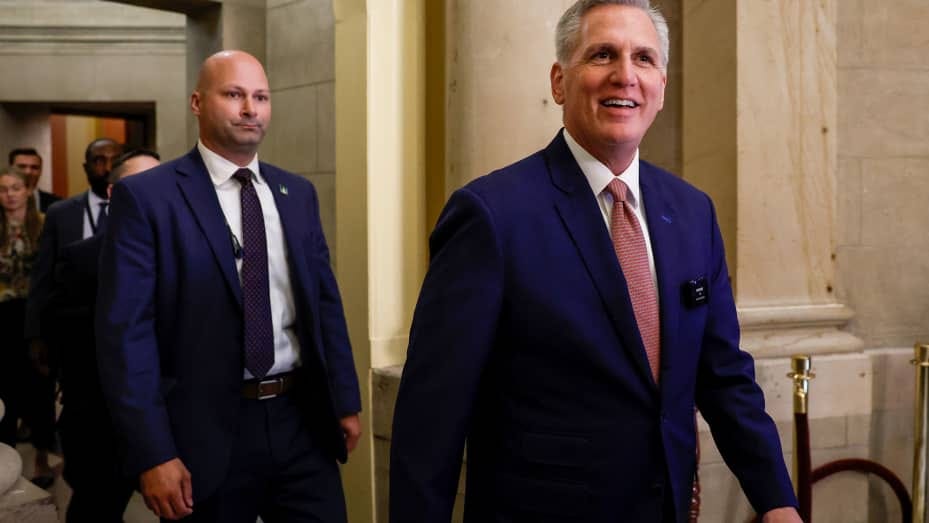House Passes Debt Ceiling Bill, Now What?
Last night the House passed a debt ceiling bill, marking a significant achievement for Speaker Kevin McCarthy and the GOP majority, despite causing discontent among some conservative members. Seventy-one Republicans voted against the bill, with 165 Democratic votes and 149 Republican voting for it. Speaker McCarthy was ultimately successful in forcing President Biden to negotiate on future spending and avoiding a default. The bill's passage sets the stage for future battles over government funding and the 2024 budget, where conservatives plan to push for their policy priorities and (hopefully) cuts.
Rep. Thomas Massie (R-KY) tweeted, “We have a chance to control spending more transparently and precisely using powerful Congressional tools such as the upcoming appropriations bills.”
More from The Hill:
One part of the bill aims to incentivize Congress to pass 12 regular appropriations bills by instituting a penalty for failure: an automatic 1 percent cut to discretionary programs, across the board.
“Appropriations is where the fight is,” [Marjorie Taylor] Greene said.
Spending will not be the only fight. Conservatives are also eying the coming 2024 budget debate as their leverage point to install favored policy priorities.
Rep. Warren Davidson (R-Ohio) said that the only way Republicans can combat “weaponized government” is through the appropriations process. Greene is fighting hard for a balanced budget amendment and legislation to block any new hires at the IRS. Other Republicans have eyed defunding parts of the FBI that they find objectionable.
The Fiscal Responsibility Act will now go to the Senate. Majority Leader Chuck Schumer said, “There’s been a very good vote in the House. I hope we can move the bill quickly here in the Senate and bring it to the president’s desk as soon as possible.”
Consumer Prices Continue to Rise
The New York Times reported that many big companies are continuing to raise prices or maintain them at elevated levels, despite a slight decrease in the prices of oil, transportation, and raw materials. The Times and Democrats want you to read this as corporate greed at consumers’ expense. Perhaps, but there’s still a lot unknown about where the economy is going.
The Times acknowledges that while some economists argue that companies are being greedy, others suggest that higher prices are driven by increased consumer spending, stimulus payments, and low interest rates. However, signs are emerging that consumers are becoming more price-sensitive, and some companies are experiencing resistance from cost-conscious customers. Despite this, investors remain relieved at the strong performance of corporations in the first quarter.
I also can’t help but think some Americans are adjusting to higher prices as the new normal and rather than cutting back, they are relying more on credit cards. The Epoch Times reported:
Despite real wage growth (inflation-adjusted) being stuck in negative territory, consumers have utilized two tools to fund their spending and cover higher prices: debt and pandemic-era savings.
Recent Fed data revealed that consumer credit climbed 6.6 percent in March, up from the 3.7 percent increase in the previous month. This was driven by the more than 17 percent surge in revolving credit, such as credit cards. In the first quarter, credit card debt totaled $999 billion, the Federal Reserve Bank of New York reported in its quarterly Household Debt and Credit Report.
RELATED: Debt ceiling deal could fuel Biden economy’s problems (Politico)
Keep reading with a 7-day free trial
Subscribe to BRIGHT to keep reading this post and get 7 days of free access to the full post archives.





